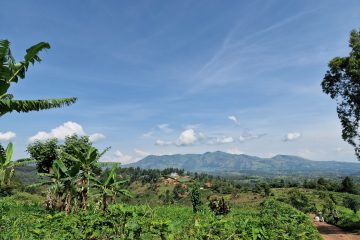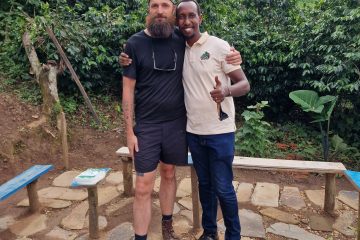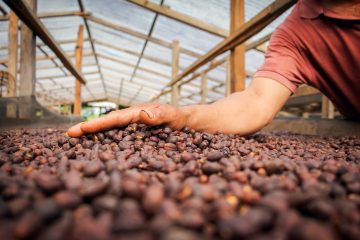
Just finished of this years “early crop” sourcing trip to Rwanda and Burundi. It’s still a little early to nail all our coffees, but I already found some beautiful batches of smaller quantities and it’s very promising for what’s to come. I had a few coffees on the cupping table the last few days that’s probably the best stuff I ever had in Rwanda. Found some great coffees from some new Coops in Burundi as well that we hopefully will follow up and purchase from.

I started this trip Wednesday the 25th, about two weeks ago visiting some new washing stations in the East, then went to the west to Kibuye and Nyamasheke. From there I went to Nyamagabe in the south where we have some interesting projects together with a producer.I went down to Burundi by car. Spent a day meeting people in Bujumbura, before I headed up north again to visit Burundian producers. Gathered a lot of samples that I brought with me back to Kigali. Spent the last four days cupping and recupping about 100 Rwandan and Burundian coffees, mostly daily lots from private washing stations and Coopreatives we are interested in. Met with our exporters as well to see if we can get some early shipments this year of the fresh crop.

Rwanda
For most areas it’s a good yield this year. Even if the volumes are up and the coffee market is down in general cherry prices are still relatively good for the farmers. It’s also because it’s big competition in some areas. Even if competition can create some problems on cherry quality it’s good for the farmers. The problem is that when producers are desperate for cherries it’s hard to be selective and refuse to buy ripe cherries only as the farmers will sell their coffees to a different washing station, or even worse, do home processing. There has been some drought during the maturation period in some areas and I heard some rumors about quality being low this year because of that. From what I have cupped so far I would say it’s the opposite compared to last year. I have never had some many great cups on the table this early in Rwanda before, and I am pretty sure our coffees will be standouts this year.
There are a couple of washing stations in Nyamasheke and Kibuye, both in the western province that we will work with. They have great altitude and right now the management will probably be better than ever. It’s a new project initiated by Dormans Coffee ltd from Kenya and CMS (Coffee management Services) from Kenya. They are implementing good systems for cherry selection, processing and quality control. They will also do farmer-training programs and the farmers get second payments from the premiums we pay.

We have also just started a project in the southern region with a producer called Samuel Muhirwa, where we are separating out small volumes from different mountains and hillsides surrounding the washing stations of Buf Remera and Buf Nyaruzisa. All in altitudes from 1800 – 2000 meters. It’s amazingly big differences in flavors from the one hill to the other in the same area, and I believe working like this with lot separation on the washing stations will reveal a lot of great Rwandan coffees over the next years. I personally had my best Rwandan ever on the cupping table from one of these micro lots. Our plan is to produce 50 -75 bags from two different hills (communities)We have access to some other great stuff through RTC (Rwanda Trading Company). Currently a cooperative in the south as well as other potential stunners.

Burundi
I haven’t been as active in Burundi the last few years as in Rwanda. I am now narrowing it down to certain areas, and washing stations/Coops we want to work with. So far it seems like there is coffees from Kayanza in the North that really performs well for us, but here as well in Rwanda it’s still early for the higher altitudes. Last year I had some super nice coffees from the south as well that will be followed up.
There are a lot of changes going on in Burundi these days. There are many of the state owned coffee washing stations that’s auctioned out, inviting the private sector to invest in coffee. There has been a USAID program, DAI, going for some years that’s ending this October. They have done a lot of good work on the ground on everything from agronomy training, developed new standards for processing and established new Coops. They have also been very supportive to help potential buyers get around and source coffees. It will be interesting to see where the coffee industry in Burundi goes from here. The structure and processing at the washing stations works well in general, you can find coffees with fantastic flavors and characters but there are some challenges on exports and milling, basically because there’s not many to choose from. Still, I had a very good meeting with the manager of the mill we will use and it was promising. We just have to take decitions on our coffees asap, not to risk coffees stuck in line for milling when all other coffees are supposed to be milled and shipped.

We are hoping to finalize most of our coffees in the region during the next two months and get most of it shipped by July. Most coffees will be shipped to Oslo and distributed spot. Still if there is interest of full containers for FOB direct shipments we have access to good volumes of supernice qualities from some washingstations.



